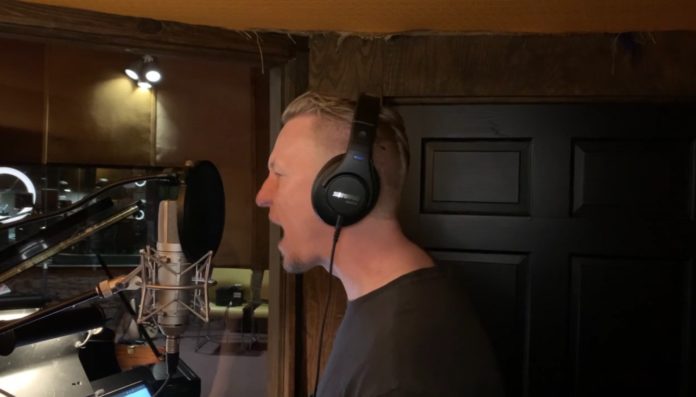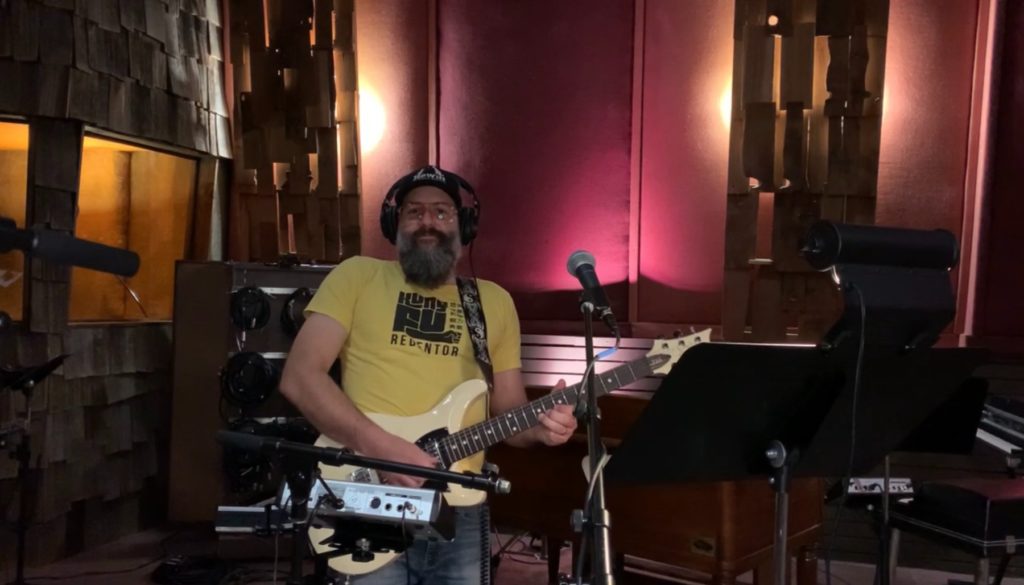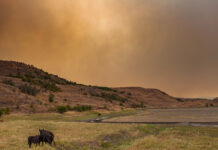
A Mercer University School of Music professor has reimagined three classic hymns in a style more reminiscent of 1990s grunge than 1800s folk gospel.
Dr. Nathan Myrick, assistant professor of church music, and colleague Dr. Marcell Silva Steuernagel, assistant professor of church music at Southern Methodist University in Dallas, initially came up with the idea as a joke but then realized it had academic and artistic merit.

“American popular religiosity has sung these songs in various ways for various purposes, and we realized that doing them in this very intense kind of musical arrangement seems to resonate with people on a very deep level,” Dr. Myrick said.
Dr. Myrick and Dr. Silva Steuernagel rearranged the hymns “Come Now Fount of Every Blessing,” “Shall We Gather at the River?” and “Solid Rock” in a punk rock and alternative rock style, similar to the band Nirvana.
They recorded the songs at Mercer Music at Capricorn’s Capricorn Sound Studios and will present them in a video accompanied by a lecture at The Hymn Society’s annual conference, to be held virtually in July.
In 1864, Robert Lowry, a Baptist minister who was struggling to pastor his church through the Civil War amid so much death, wrote “Shall We Gather at the River?”
“It’s like, ‘Will we get there? Will we see these people again?’” Dr. Myrick said. “And the hymn resolves right away into the chorus of, ‘Yes, of course we’ll gather at the river,’ and then it turns into the celebration of what we’re hoping for in heaven.”
But in many ways, he said, that quick resolution undermines the effectiveness of the song at a time when America is reeling from more than 500,000 deaths due to COVID-19. More than 3 million people have died from COVID-19 worldwide.
“Even though the song has pervaded and been very important in American history, in religious history, right now it seems more important that we keep that question open for a little longer because we’re still in the midst of this, and I don’t know that we’re ready for the quick resolution yet,” he said. “So we changed the lyric in the chorus from, ‘Yes, we’ll gather.’ We just kept asking, ‘Shall we gather?’”
The pandemic has led to anger, anxiety and distrust toward God, Dr. Myrick said.
“People need to both give voice to their anger and their anxiety but also be able to be comforted,” he said. “In a weird way, I’m starting to see that these arrangements of these hymns might actually provide that.”

Changing the style of music changes the way people experience a song, “not only in terms of the melody and harmony and rhythm but also in terms of how you experience the lyrics themselves,” Dr. Silva Steuernagel said.
The rearrangements of these hymns create a space for people to be angry or confused during worship, he said.
“When you look at the Bible, there’s plenty of precedent for being mad at God and other people, and that’s one of the things that I think church music within that ‘pretty vein’ doesn’t really help,” he said. “It helps when we want to feel good. It doesn’t help when we’re angry.”
Historically, punk rock music rose out of social activism, and calling the rearrangements punk rock or hardcore is a way to leverage that association with social critique, Dr. Myrick said.
“There’s a ton going on, and there are real deep injustices and evils that have forced themselves into our consciousness in a way that they have not prior to the pandemic,” he said.
The music received a positive reaction from a tour group that came through Capricorn during the recording session.
“You could see them bobbing their heads and nodding to each other, and it looked like they were having fun,” Dr. Silva Steuernagel said. “So, for me, that’s a good indicator that we’re onto something fruitful here.”
Both Dr. Myrick and Dr. Silva Steuernagel sang and played guitar; Dr. Marcus Reddick, associate professor and director of percussion studies at Mercer, played drums; Los Angeles-based John Bottrell played bass and helped with mixing; and Rob Evans, chief engineer at Capricorn, engineered.
Dr. Silva Steuernagel acknowledged that some people might not like the music.
“For some people, they just can’t get on board with this idea of taking this musical object that they’ve held in reverence for so long and absolutely shaking and reframing the way that it is experienced in song,” he said. “But there are always more people that are curious than mad.”








